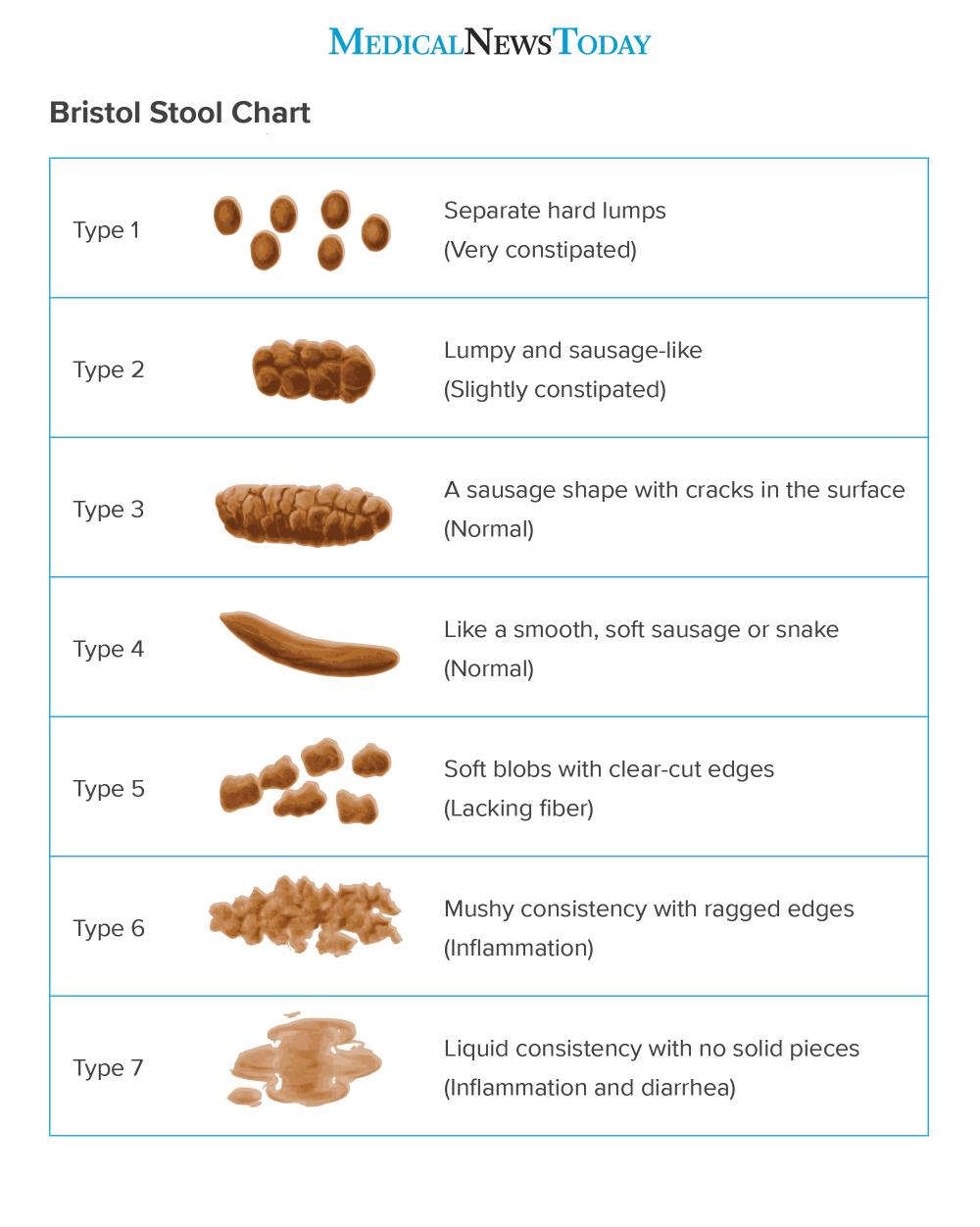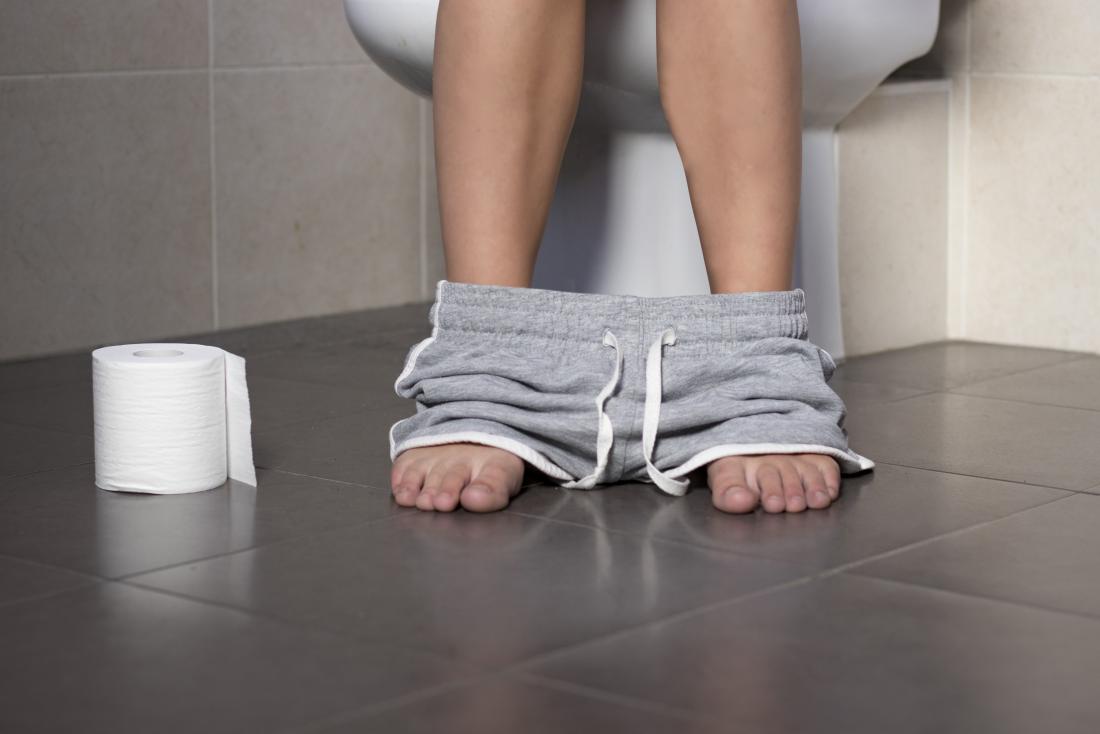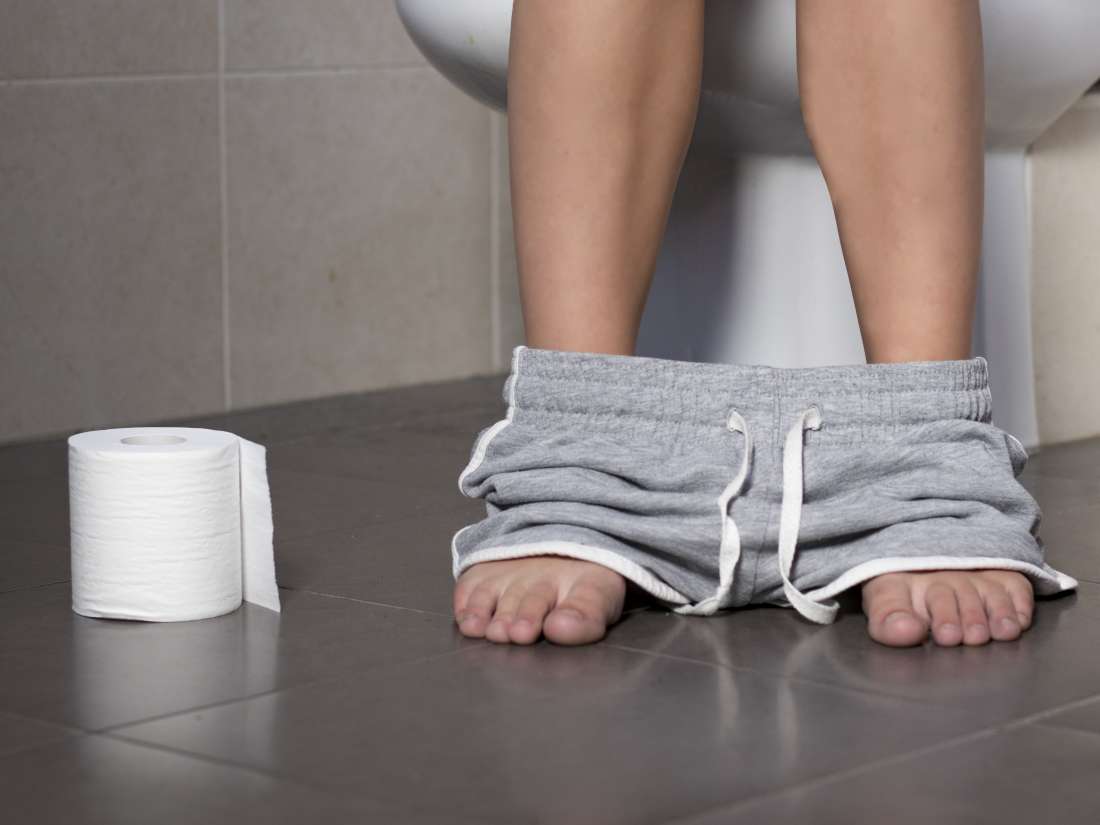Constipation is a common problem that most people experience from time to time. Chronic constipation can be painful, and it may indicate an underlying health problem.
In this article, learn about the causes of pebble poop, as well as the possible treatments and home remedies.
What is pebble poop?
Pebble poop, or pellet-like stool, may occur when very hard stool breaks apart into smaller pieces.
This breakage can happen during digestion, or it may take place in the anus immediately before a person has a bowel movement. It can be more difficult to pass these small pellets than a normal stool, and a person may strain to poop.
Most people have a regular bowel movement pattern, passing stool from between three times a day to once every 3 days. People with longer digestion periods and less frequent pooping may develop hard stools.
When food passes through the digestive system, the colon absorbs some of the water that the food contains. Food that passes more slowly than usual spends too much time in the colon. As a result, the colon absorbs too much water, and the stool may become hard.
Some other symptoms that a person might experience in addition to pebble-like stool include:
- painful bowel movements
- straining to poop
- stools that feel too large to pass
- the feeling that some stool remains left behind, even after a bowel movement
The Bristol stool chart is a tool that helps people identify problems with bowel movements. Pebble poop is type 1:

Causes
Hard, pebble-like stool is a sign of constipation, which can happen for many reasons. Certain lifestyle and dietary factors can make constipation worse.
For example, constipation is more prevalent in seniors due to the changes in muscle tone and nervous system function that typically occur with increasing age. An older adult who does not eat enough fiber or takes medications that may cause constipation has an even higher risk of hard stools.
Some other risk factors for constipation include:
- Anxiety. Children and toddlers may not poop when they feel anxious or when there is a major change in their home or bathroom routine. Children who are toilet training may refuse to poop if their parents or caregivers are punitive or too aggressive with toilet training.
- Medications. Excessive use of constipation medications, such as enemas and laxatives, may cause hard stool. Antidepressants and some narcotics may also slow digestion, causing dry and pebbly stools.
- Neurological conditions. Some conditions that affect the nervous system, such as dementia, may make it difficult for a person to know when and how to go to the bathroom.
- Gastrointestinal problems. Irritable bowel syndrome (IBS) and other conditions that affect the stomach and intestines may cause constipation. Some people with food sensitivities also experience this symptom.
- Physical injuries. Spinal cord injuries, damage to the bowels, and muscle injuries to the pelvic floor — such as those resulting from childbirth — may make it difficult for a person to have a bowel movement. This delay can slow digestion and cause pebble poop.
- Chronic illnesses. Many chronic illnesses can cause constipation by affecting nerve or muscle function. Diabetes, hypothyroidism, and colon cancer are examples of conditions that may cause this symptom.
- Lifestyle. A sedentary lifestyle may increase the risk of constipation, especially for people with other risk factors.
- Diet. Low fiber diets may cause pebble poop. Some people develop pebbly stools when they do not drink enough water.
Treatments and home remedies

To soften the stool, a person can try eating more fruit.
If the symptoms are mild, or the constipation is not chronic, a few lifestyle changes may help a person treat pebble poop at home. Medication can also help them manage occasional hard stools.
These strategies may help:
- Eating more fiber. High fiber foods may help soften the stool. Women need at least 25 grams (g) of fiber per day, while men need about 38 g each day. Fruits and vegetables are rich in fiber.
- Drinking more water. For some people, pebbly stools are a sign of dehydration.
- Trying a stool softener. These drugs reduce the amount of water that the colon absorbs, making stools easier to pass.
- Using an over-the-counter constipation medication. These drugs can speed up digestion. Constipation medications may also make hard stools easier to pass.
- Exercising. Exercise can improve the strength of pelvic floor muscles and support muscle tone in the abdomen and throughout the body, which may make it easier for a person to have a bowel movement.
When a person has chronic constipation or a serious underlying medical condition, symptoms may only improve with medical treatment.
The right treatment will depend on the reason why a person has constipation. For example, a person with pelvic floor dysfunction may not have sufficient strength to pass stool, slowing digestion and causing pebble poop. A doctor may recommend pelvic floor physical therapy.
For people with IBS, a doctor may advise eliminating possible trigger foods from the diet one by one to see if this helps resolve the symptoms. If a person identifies a particular food that seems to cause issues, they can avoid or limit their intake of it going forward.
Pebble poop in children and babies
Pebble poop can be distressing for babies and young children. They may fear that passing the stool will hurt, and they might, therefore, refuse to have a bowel movement. Holding in stool can slow digestion, causing the stool to become even harder.
Over time, children who hold in bowel movements may develop stools that are very hard and painful. These stools can partially block their intestines and may cause bed wetting and other types of incontinence.
Parents and caregivers should seek treatment for children with chronic constipation or persistently hard stools.
People can try these home remedies to help an infant or child pass hard stool:
- Encouraging the child to try to have a bowel movement. Try taking them to the toilet every hour and making the experience less stressful by singing a song or playing a game.
- Avoiding punishment or anger, which can intensify a child’s anxiety about having a bowel movement.
- Offering the child whole fruit, prune juice, or a fruit smoothie. Dark berries are especially helpful. Bananas can cause constipation, so it is best for a child to avoid them until their stool returns to normal.
- Giving the child plenty of water and reassuring them that drinking more water may help. They should not replace water with sweetened fruit juice or other sugary beverages.
- Talking to the child about what causes pebble poop, if they are old enough to understand. Some children may feel less afraid if they know that they can take action to make their symptoms better.
It is essential not to give constipation medicine to a baby or child without first talking to a doctor.
The following strategies may help babies:
- Moving the baby’s legs in a circle as though pedaling a bicycle, while the baby lies on their back. This movement can stimulate the muscles and bowels, and it may help the baby have a bowel movement.
- Continuing to nurse the baby or give them a bottle at regular intervals.
- Avoiding giving water to an exclusively formula-fed or breastfed baby unless a doctor advises otherwise.
When to see a doctor

If there is blood in a person’s stool, they should speak to their doctor.
People may wish to see a doctor about pebble poop if:
- symptoms persist or worsen over several days
- there is blood in the stool
- a person experiences intense stomach pain or a fever
- a child refuses to have a bowel movement or has frequent bladder accidents alongside hard stools
Summary
Hard, pebble-shaped poop is a common frustration. The occasional pebble poop usually means that a person did not get enough fiber or water that day.
Minor stomach problems and infections can also temporarily slow digestion, causing constipation.
When pebble poop lasts for days or weeks, however, it may be a sign of a serious problem. Chronic hard stools can also be very painful, triggering anxiety about having a bowel movement.
In many cases, a quick consultation with a doctor can help resolve the problem. Even when the cause of pebble poop is more serious, prompt medical care can stop the problem from getting worse.
